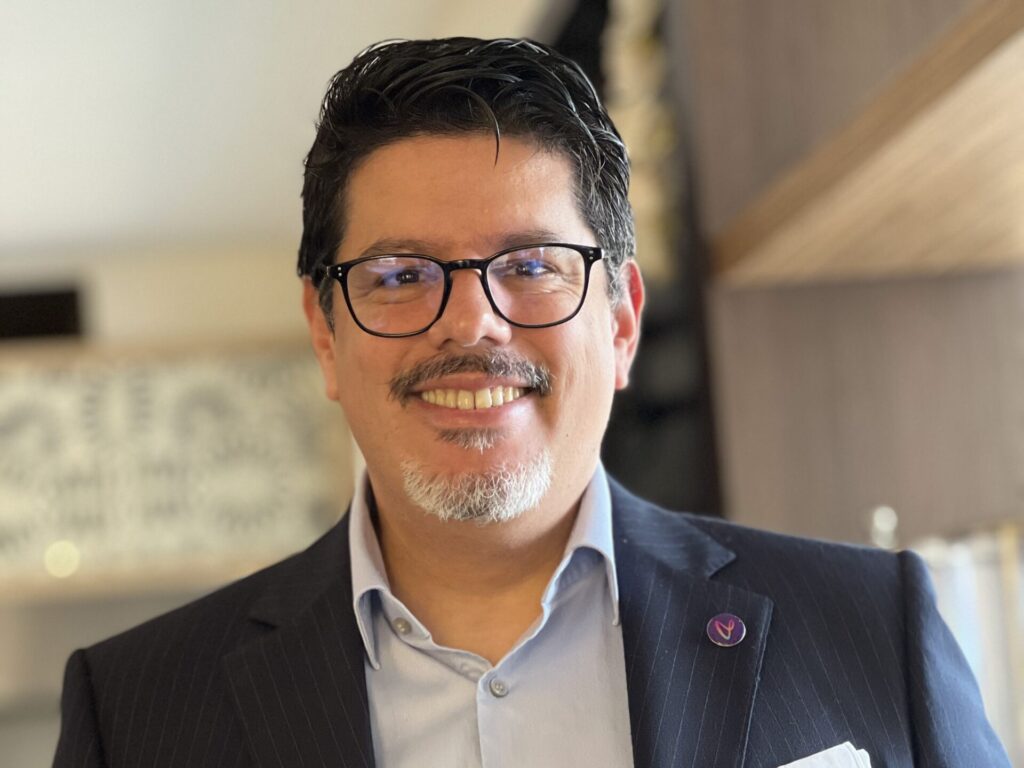This year Latin America has been one of the most hotly discussed gambling regions in the world, writes Lauren Harrison. But as markets evolve, and the regulatory dust settles, the big question is: What’s next?
So iGF Head of Content Curtis Roach sat down for an exclusive one-on-one with LatAm expert Ramiro Atucha to discuss this priority issue.
A veteran of the industry, with over three decades of experience, Ramiro is a born entrepreneur and leader.
He co-founded Leander Games in 2008, building the games studio from the ground up and scaling it globally. Then in 2020, he founded Vibra Gaming, a LatAm-focused game studio and platform provider – a role he relinquished in July this year.
Recognised twice among the industry’s top 50 most influential leaders, Ramiro is often called upon to share his expert insights on international panels and is a trusted voice, especially regarding Latin America.
Join the conversation as we dive into pertinent topics shaping the region.
From sustainable growth strategies and creating a balance between creativity and compliance, to how regional mergers and acquisitions are affecting competitive advantage, and the importance of localisation, we explore Latin America and what it means to the wider iGaming industry.
Curtis began by asking:
Latin America has been evolving rapidly, with Brazil now leading the way. Which local markets should operators be watching closely? And what strategies are most effective for achieving sustainable growth there?
“Mexico stands out among the emerging markets. Even though its regulatory framework dates back several years, it continues to function effectively and allows a vibrant market to operate. With a large population, rising digital adoption, and a growing number of active operators, Mexico is quickly positioning itself as the next major growth story in Latin America.
“The markets most likely to succeed will be those where operators adopt long-term, compliant approaches: Investing in localisation, responsible marketing, and strong payment infrastructure. Building trusted relationships with regulators and communities, rather than pursuing short-term gains, is what will ensure enduring success in the region.”
As more jurisdictions move towards regulation, how do you see iGaming content providers navigating the balance between compliance and creativity? Is regulation a limiter or an opportunity for innovation?
Regulation naturally constrains creativity, but it’s an essential safeguard. The aim is not to suppress innovation but to ensure fairness and protect players. These are fundamental principles for a sustainable industry.
“The risk comes when regulatory frameworks over-reach, imposing duplicate or incompatible licensing and certification processes on content providers. This can unintentionally put regulated operators at a disadvantage, as players seek broader content libraries in unregulated spaces.
“The most effective approach is to require supplier registration and certification while recognising established international standards. Markets that adopt mutual recognition of certifications–such as GLI or BMM approvals–create both safety and diversity in their regulated ecosystems.
“Regulation is necessary, but it should be smart regulation, building trust without blocking innovation.”
We’ve seen a wave of M&A activity across the global iGaming industry. Do you anticipate further consolidation in Latin America, and what impact will this have on the level of market competition?
“There’s been an initial wave of M&A across Latin America, but it hasn’t yet reached full momentum. Many global investors remain wary of shifting tax policies, evolving regulations, and political uncertainty.
“In markets like Brazil, occasional rhetoric about reversing or tightening regulation creates understandable hesitation among larger acquirers.
“Consolidation is part of every market’s evolution. We already see it in the U.S., in Colombia, where just a few operators command most of the share and in Mexico, where Caliente maintains clear dominance.
“Brazil is now beginning to show similar signs, with a handful of brands establishing early leadership positions.
“Even as consolidation advances, these markets still offer opportunities for agile, well-positioned smaller operators. Niche focus, local partnerships and strong product differentiation can still yield meaningful growth before the region’s M&A cycle fully matures.”
Localisation is key in LatAm markets. How can both suppliers and operators best leverage player preferences, cultural nuances, and regional payment habits to deliver truly tailored gaming experiences?
“For operators, localisation goes far beyond translation. It means communicating in the right tone, through the right channels and with references that resonate locally. Marketing, sponsorships, and community engagement need to reflect national identity and entertainment habits.
“But perhaps the most decisive factor is payments: Understanding and integrating regional payment methods is essential to building trust and seamless access for players.
“For content providers, localisation starts with recognising the market’s level of player maturity.
“In early-stage markets, for example, players often migrate from retail or land-based experiences. Offering a mix of simpler, familiar game types alongside more advanced content helps shorten the learning curve. Successful suppliers are those that respect what players have been enjoying historically while gradually introducing innovation.
“Together, culturally relevant marketing, accessible payments and thoughtfully localised content create an authentic experience that feels native–not imported–to Latin America’s diverse audiences.”
Editor’s Note:
Ramiro is a straight talker who has a crystal-clear understanding of the region’s dynamics and its evolving iGaming landscape.
Following the excitement surrounding Brazil, Ramiro believes Mexico is now the “next major growth story”, backed by its burgeoning population, rising digital adoption and increasingly sophisticated operator activity.
When it comes to success in the region, Ramiro’s message is clear: Think long-term. Prioritise compliance, invest in localisation, responsible marketing and robust payment infrastructure. And create successful relationships with both regulators and local communities.
Put simply: Short-term gains won’t cut it. LatAm belongs to the operators prepared to play the long game.
As for consolidation, Ramiro remains optimistic.
While there’s no denying the wave of recent mergers and acquisitions, he believes there’s still space for smaller, more agile operators who are prepared to carve out a niche.




